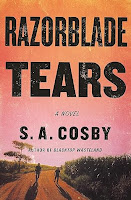Anthology of 14 stories plumbing the depths of domestic suspense.Mystery Review: Troubled Daughters, Twisted Wives, a collection of 14 stories by female authors published between 1943 and 1977, warns us that things are not what they seem to be and people are not who we think they are. This is often true in mysteries when the truth is obscured until the end. In the best of these stories, however, some mystery, the "why," still remains. These tales of "domestic suspense" lean toward the dark, creepy, demented, even mildly supernatural. The "twisted" of the title, hinting at psychopathy, is appropriate even though the stories are based on family, or the lack thereof, and rooted in the mundane, everyday lives of middle America (mostly). The narratives here are less predictable and formulaic than usually found in the crime genre. Although the stories span four decades only one was published in the Fifties, which seems the height of the domestic suspense era, but maybe that's just in the movies. Troubled Daughters, Twisted Wives features notable names like Patricia Highsmith and Shirley Jackson, along with some of my personal favorites such as Dorothy B, Hughes and Margaret Millar, middling-known writers such as Vera Caspary (author of Laura), Charlotte Armstrong, Dorothy Salisbury Davis, Elisabeth Sanxay Holding, and Celia Fremlin. The other five authors were new to me but no less interesting. As with any selection there are hits and misses with two or three being a bit simple or just whooshed me entirely. "Louisa, Please Come Home," "Lavender Lady," "Sugar and Spice," "The Purple Shroud," and "The Stranger in the Car" were the stories I particularly enjoyed, but I easily could see readers picking five others as their favorites. Margaret Millar's "The People Across the Canyon" seemed a perfect Shirley Jackson pastiche. What also struck me about Troubled Daughters, Twisted Wives is just how professional the writing is, how well-written in structure and tone. These people wrote for a living. A job well done. [4★]








